Overhead bins… probably one of the more boring aspects of the airline business, but they’re very important and are about to get better. Boeing and Alaska Airlines just showed off the new Space Bins. What are these and why should you care? How about never having to worry about there being enough room for your bag on the plane? Yea… now that’s stellar!
Multiple times during the special media event, held at the 737 Delivery Center at Boeing Field, Alaska stated one of the main reason for the new bins was to reduce anxiety.
Although many of us love flying, there are times where love and frustration can mix. Even when I am boarding with the first half of the passengers, and I know there will be room for my bag, I still worry.
Sometimes I board and quickly realize, “Houston… we have a problem…” there is no room for my bag! I have to gate check it and wait for it again at my destination, something I don’t want to do. And even if there is room, how many of you have been sitting in row 10, but your bag is in row 25? Annoying. These new bins will hopefully put an end to all of that.
The concept seems pretty simple. Make bins bigger, so they can hold more bags. But it is not that easy. Although much on the Boeing 737 has changed since it first went into service with Lufthansa in 1968, the fuselage dimensions are still the same. Boeing has constantly evolved the aircraft, including making the bins better with their semi-recent Boeing Sky Interior upgrade. But how to fit in even more bags? With science of course!
BONUS: VIDEO: BIGGER. BETTER. CHECKING OUT THE NEW BOEING SPACE BINS FIRSTHAND
Over the last three years, the airline has been working with Boeing on developing the new bin. They have been lowered about 2″ and the pivoting point was changed, which allows a standard roll-aboard back to fit sideways.
In the end, 57 more bags will fit on a Alaska 737-900ER compared to the same plane with the Sky Interior. That is now a total of 174 bags that can fit in the overhead bin. With 181 seats on the 737-900ER, that should mean that gate checking will become a rare occurrence.
Alaska isn’t even fitting in as many bags as possible. If another airline opted for the new Space Bins, up to 198 bags total could be stored onboard.
I think at this point I want to handle some of the criticisms I have heard about these bins. It shocks me that there have been so many debbie-downers (mostly via Twitter) about these bins. Why all the hate?
Some people have been saying this won’t work in the real-world. These are all marketing bags and people don’t put them in right and what about odd objects? Yes. I doubt that 174 bags will properly be on every flight. But this is more about comparisons. Passengers do it wrong with bigger bags and odd objects now, and the max is 117 bags. Remove the numbers and just know that you can fit in about 48% more of your crap in the bins, whatever your stuff may be and however you want to store it. That’s impressive.
They reached their numbers not by using a dwarf-sized bag. The bags are a standard size of 9″ x 14″ x 22″. And guess what? To make sure there was no trickery, I brought my own bag with me to the event. This bag has made a few orbits around Earth with me and almost always in the overhead bin (United once decided it was too big… I don’t want to talk about it). And guess what? The new bins are legit.
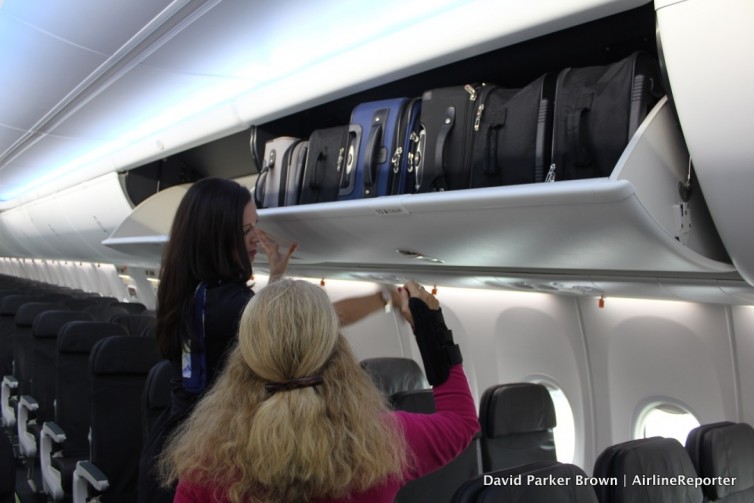
Harriet Baskas and flight attendant Jenn-Marie check out the new Space Bins
To get the most usage out of the new space, passengers will need to learn how to use them. At first they will seem a bit alien and it will take training by the airline and the flight crew to educate passengers. It should work. It seems that almost every airline has different “rules” or suggestions on how to put in your carry-on. Wheels in or out? Sideways or flat? Paid or not paid? These things have all been (mostly) successfully taught, so this should work.
One thing I had to ask myself is, won’t this reduce Alaska’s revenue? In a way, this anxiety from passengers makes Alaska money. People will either pay to have their bag checked or they will pay in some way to get priority boarding, guaranteeing their bag will have a place. If that anxiety is gone, will the airline lose money? Possibly, but they seem to be willing to take the risk.
Lower the anxiety, make the travel experience a bit easier, and they hope that more people will not only be willing to fly, but fly their airline. Alaska feels that the potential positives outweigh the negatives and are excited for this heavenly change.
The plane that I toured (N487AS) will likely be delivered this week to the airline, and then will enter service on November 1st. Some of the people behind these new bins will be on those first few flights, watching to see how passengers interact with the new bins and see if they work well in the real world.
The airline will take delivery of 35 new 737s over the next two years with the new Space Bins. They will also be retrofitting 34 737s currently in the fleet in 2016. By 2017, the airline plans to have 69 planes with the new bins, which is 46% of the airline’s passenger fleet. Once you have these bins on your long flights, that is when you can start providing something unique and consistent to passengers. Could they possibly start offering guarantees that every passenger will have room for their carry-on bags? That would be astronomical!
Other airlines will be able to choose the Space Bin as well. Even though the Boeing Sky Interior will become standard on the MAX, the Space Bins will still be an upgrade option. Since the bin’s length, of 60″, is the same as the Sky Interior sections, retrofitting those interiors is not that challenging. The non-Sky interior replacement (called a “big bin”) is 80″ long and is more labor intensive (i.e. $$) to upgrade.
I think it is hard for these not to be a success. Yes… change, in any form, is scary. Especially for many frequent fliers who take pride in knowing how the flight experience works. Any initial issues will likely be quickly dealt with and we will all end up with more space for our stuff.
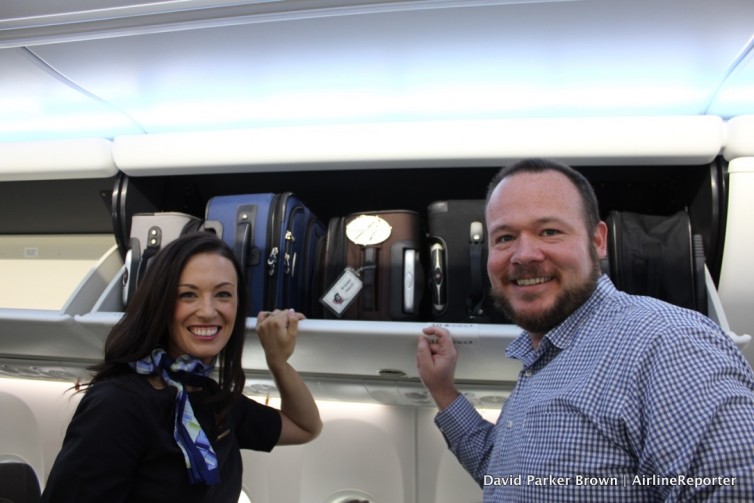
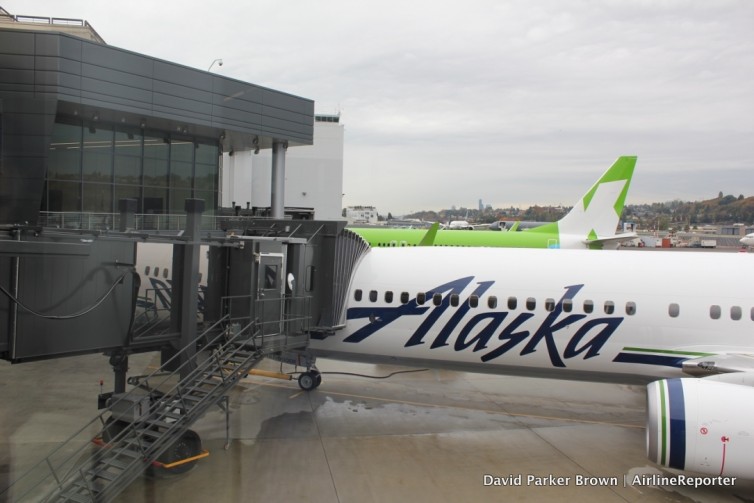
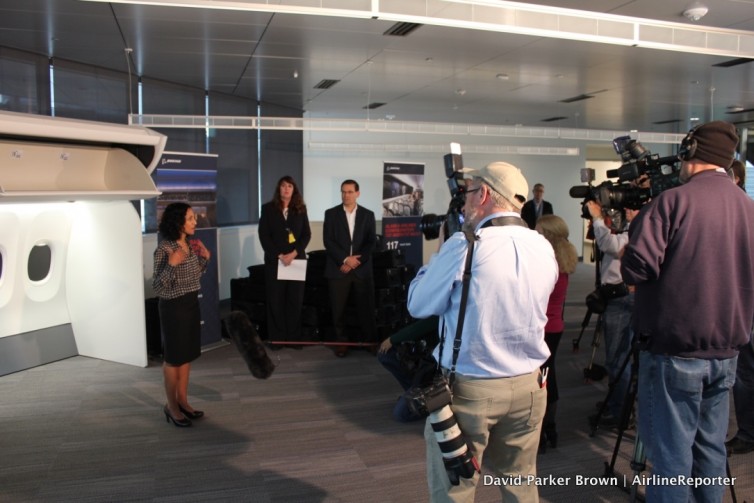
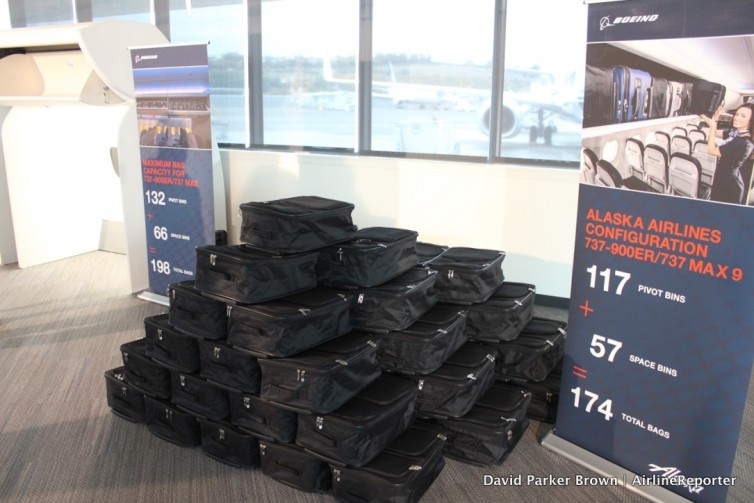
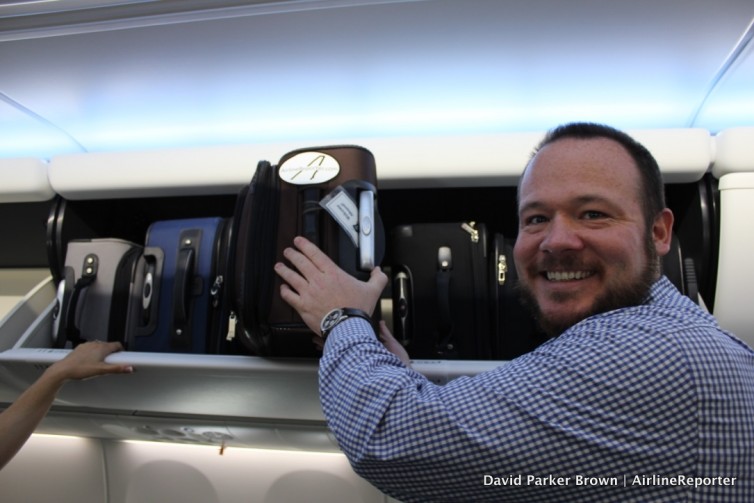
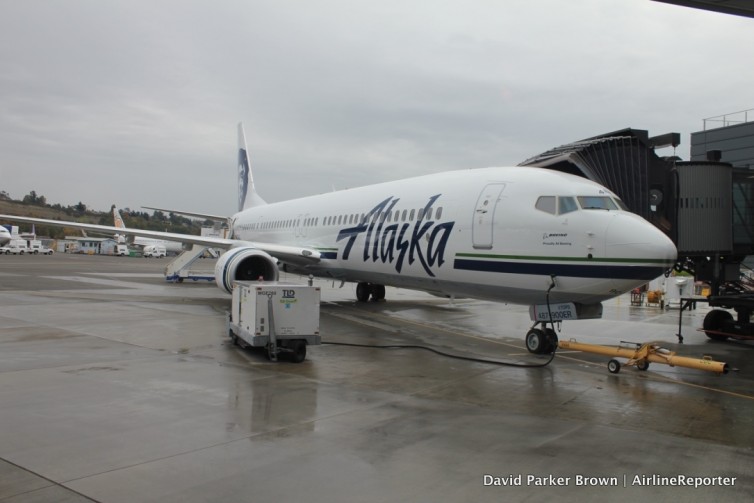
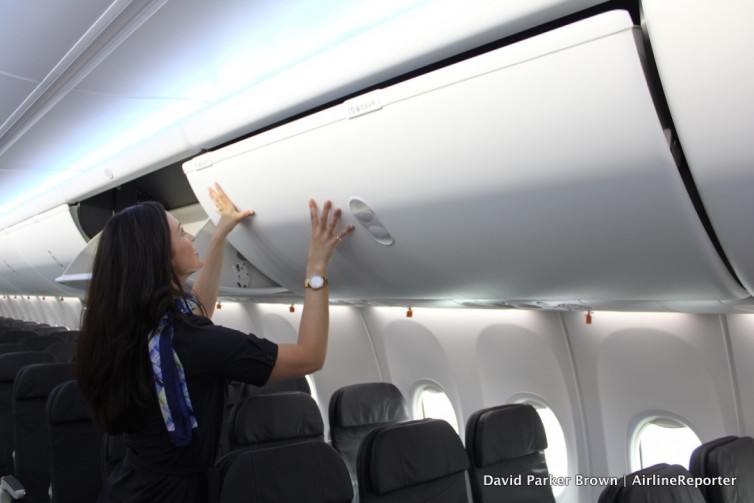
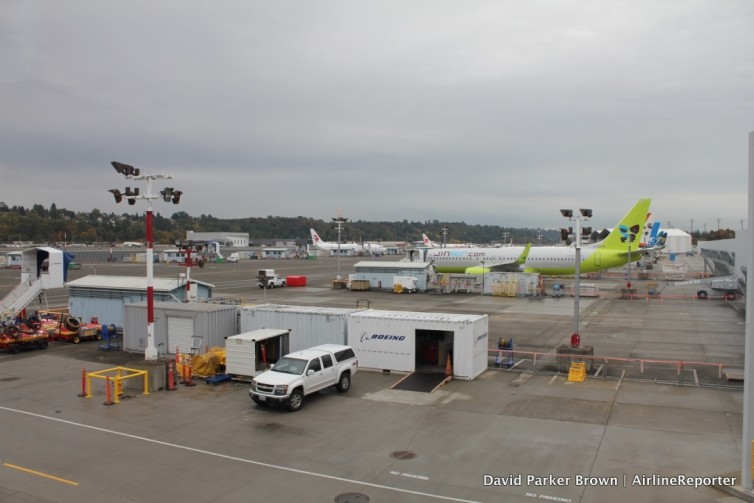
Excellent news! I was surprised to discover classic era bins on Alaska’s -800 on my very first flight with them. This will be much appreciated next time I hop aboard Chester Express.
I would like an airline to go further and put in spacers and assigned an allotment to each and every seat. It would require some sort of bag closet at the front of the plane for the first few rows, and again education that big bags go up, little ones under the seat in front of you. Oh and each and every bag gets a trip to the size bin at the door. I hate when people have the expansion zipper open and a bag filled seemingly with lead!
The same could also apply in reverse and may contribute to why the row 10 passenger has to stow his luggage in the rear of the aircraft. Many times I see, passengers who are seated in the rear placing their bags in the forward overheads even when there is ample space in the bins.
Hey Jason,
You are right. I think much of that comes from people being worried there won’t be room for their bag in the back. This should help (hopefully). For those who are just aholes — not much can be done there.
David | AirlineReporter
how much room was left after that 14″ bag went in? the B&R international carry on is 15″ wide? would that bag fit on it’s side? thanks, BW